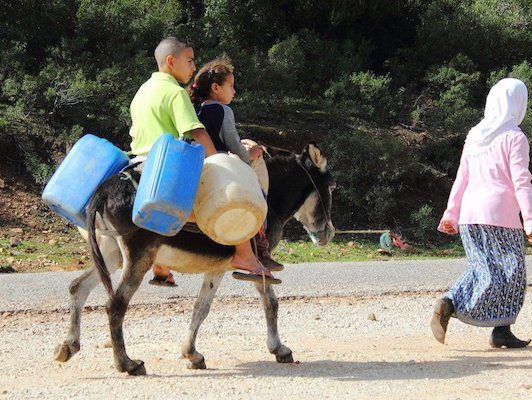Water Poverty
The past centuries have paved the way for immense improvements in quality of life, but unfortunately, there are still parts of the world without easy access to clean water. Countries – mainly located in Africa and parts of Asia – face a daily struggle to meet their basic needs, and are not having their human rights met. Clean water has the power to transform a community and alleviate survival pressures. Without it, communities become trapped in a cycle of poverty that further exacerbates other social challenges, such as healthcare and education – further increasing their vulnerability. Sustainable water supplies can create a fairer society and improve the health and prospects of all communities. The United Nations’ goal is to end water poverty once and for all by 2030, through sustainable water solutions, so it is everyone’s responsibility to work towards this aim.
Water-Borne Disease
Poor communities across the world risk their lives daily by drinking dirty water. They are at risk of diseases that are found in unclean water, such as cholera. UNICEF estimates that cholera sadly takes the lives of hundreds of children every single day, which is a shocking number of lives to lose to a preventable illness in contemporary society. These deaths, as well as other diarrhoea-related illnesses, are wholly preventable with access to safe water for drinking and sanitation. It would prevent water-borne diseases from being ingested orally, or spread through lack of hygiene and effective waste disposal.
Many countries also face the risk of ingesting microscopic parasites that breed in water, caused by water supplies not having adequate storage, filtration, or transportation systems in place. Some insects breed in clean water as well as dirty water, meaning that a perfectly clean water source could easily become contaminated in countries that lack appropriate storage for freshwater, or that lack appropriate waste management systems.
Lack Of Sanitation
The coronavirus pandemic has placed further pressure on the need for clean water for sanitation. For countries that already face water poverty, the task of washing hands to stay safe has been impossible. Poor communities in Africa and Asia already have great difficulty in meeting safe sanitation standards to prevent disease, so the coronavirus pandemic has further stressed the urgent need for clean water. Clean water would help maintain basic health and safety, as well as helping countries to prevent the spread of infectious diseases.
The risk of infection is extended into the hospitals of poorer countries – a place that you would naturally consider to be safe. Hospitals face the same lack of clean water as their communities. Clean water is vital for treating dehydrated patients, and introducing thorough sanitation practices. Unfortunately, water poverty in poor countries leads to higher deaths at birth, higher rates of infections caught in hospitals, and increased deaths due to unsafe care and treatment practices.
Quality of Life
There is no adequate infrastructure to transport fresh water in many poor countries, which leaves communities without clean water at home. Instead, women and children are responsible for collecting water for their families each day. This journey is not only physically and emotionally demanding, but also prevents women and children from progressing to their full potential. It takes women away from work or caring responsibilities, and children away from the time they would usually spend playing or engaging in education. This is a huge hindrance to the social and economic wellbeing of women and girls around the world, trapping them in a cycle of poverty.




